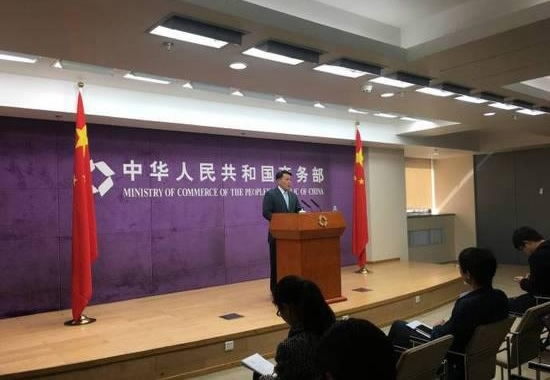China's Ministry of Commerce said on Thursday it firmly opposes authorities in the US using internal laws to impose sanctions against a Chinese firm. This is in response to the agreement announced this week by ZTE, a major Chinese telecom equipment maker, and US authorities.
The ministry said it has always required Chinese firms to abide by the laws of countries where they operate. The ministry urged the US to "deal with ZTE’s case properly, for the sake of a constructive atmosphere benefiting steady and healthy development of bilateral economic ties".
The Chinese firm was investigated and charged for knowingly supplying Iran with US-origin goods over several years, in violation of US export regulations, according to the US Department of the Treasury's Office of Foreign Assets Control in a Wednesday announcement.

Chinese Ministry of Commerce opposes US sanctions against ZTE. / Sina Picture
ZTE has agreed to pay a criminal and civil penalty of about 892 million US dollars and an additional penalty of 300 million dollars, which will be suspended during a seven-year probationary period to deter future violations, ZTE said in a statement posted on its website. In order to improve its export control compliance, it has appointed a new CEO and made major changes to the senior management team, according to the statement. It also established a new compliance committee and strengthened export control compliance training and processes.
The company has strong partnerships with many US suppliers that support nearly 130,000 high-tech jobs, and it anticipates continued growth and business expansion over the next several years from 5G technologies, said Zhao Xianming, chairman and CEO of ZTE, in the statement.
ZTE has 14 offices and six research centers in the United States, with 80 percent of the total 350 staff being Americans. It currently holds about 7 percent of the US smartphone market, the fourth largest after Apple, Samsung and LG.
(With inputs from CGTN's Wang Hui and Xinhua)









